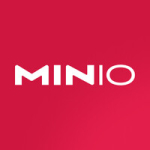
Dell PowerScale (Isilon) Valuable Features
BE
Bill Engelmeyer
Systems Engineer at a aerospace/defense firm
We use Dell PowerScale (Isilon) for large-scale data. We deal with large data files, and our solution receives data that can be multi-terabytes in size. The flexibility of Dell PowerScale (Isilon) has been good for us. Single files are limited to four terabytes in our configuration, however, the system can support up to 16 terabytes, so we can scale based on that too.
SK
SunilKublall
Solutions Architect at a university with 10,001+ employees
The features of Dell PowerScale (Isilon) that I appreciate the most include the scale of architecture and the way it is designed.
These features benefit my company by providing less downtime and less overhead.
While I have not calculated an exact number regarding the reduction in downtime, we have always been using the product, so we have no baseline to compare it to. However, it is a very good product.
Dell PowerScale (Isilon) scales very well with the growing needs of my company.
View full review »Dell PowerScale (Isilon) has supported our growth and operational success because we have used it extensively as our files platform for a number of years now. It functions as a hybrid situation between SharePoint online and OneDrive, but we still have a need for a lot of our broadcast media on-premises, which supports our security and surveillance and anything that does not make sense to put in the cloud.
The feature of Dell PowerScale (Isilon) that I prefer most is primarily its SMB sharing capability to support my file store.
In terms of features, it is a solid platform. We have really had no issues with hardware, which in this case is probably the most important thing. Replication works, snapshotting works.
I do think Dell PowerScale (Isilon) has features that specifically cater to the needs of small and medium companies. There are some entry-level platforms below that tier; we have dabbled in those as well. Dell PowerScale (Isilon) is definitely more enterprise class.
The features that I have mentioned improve my company through the reliability of the storage. It is always available, and it works, which is the important thing. The material we are storing on it is important to the business, so the fact that we never have to worry about it and people can use it easily is good for us.
View full review »Buyer's Guide
Dell PowerScale (Isilon)
December 2025
Learn what your peers think about Dell PowerScale (Isilon). Get advice and tips from experienced pros sharing their opinions. Updated: December 2025.
879,371 professionals have used our research since 2012.
MJ
Mazen Jamal Eddine
Pre-Sale Engineer
Any storage system has something called RAID, while Dell PowerScale (Isilon) uses the Reed-Solomon protocol. It's the same concept as RAID, however, it secures in case something happens on the node or the disks. In the Dell PowerScale (Isilon) system, this is calculated automatically. Instead of us assigning a RAID 5 or RAID 6, Dell automatically assigns, for example, for this project, they assigned something called 2d:1n, which means that in case of a failure of one node or two disks, the system will stay up and running. These are the protection features that I appreciate.
From the deduplication part as well, there are many features. I was recently in a meeting with some people from Dell here in Saudi, and they were talking about the new Dell PowerScale (Isilon) systems that are AI-enabled. I didn't do much research on them, however I can see where Dell's direction is going with these features.
From the automation part or from making life easier for humans, I appreciate the approach they're taking. Based on the feedback I received from Dell people who worked on the new Dell PowerScale (Isilon) system, they said things are becoming more automated and they are able to help the technical people or the pre-sales people deploy the system even better. They even enable the customer to get more insights about their data.
If something fails or there's a hardware issue, they can order parts online with Dell PowerScale (Isilon). The customer when ordering the system can add ProSupport, depending on the time needed and how critical their use case is for the system. If the customer pays for ProSupport, maintenance is very good, with service within four hours or the next business day, depending on what they order.
Dell PowerScale (Isilon) is a NAS (Network Attached Storage) and supports scale out. You can add as many nodes and scale linearly. For the first purchase to create a cluster, you must buy four nodes. Moving forward, they can buy a pair of nodes at a time. It's very easy to scale out - just initialize the node and join it to the existing cluster.
View full review »CS
Cheyne Skapyak
Storage & Data Protection Specialist at a aerospace/defense firm with 10,001+ employees
What I appreciate best about Dell PowerScale (Isilon) is the UI and the use of scripting that we can implement with it to automate a lot of our workloads. Dell PowerScale (Isilon) has benefited our organization overall by helping a lot of our end users more than the actual IT group, and it has been awesome.
View full review »The most valuable features of Dell PowerScale (Isilon) are its multi-protocol purpose and the performance it provides. It's very useful for many purposes and any other case we want to use, providing us with a really useful tool for our needs. Dell PowerScale (Isilon) is a platform that is very easy for teams to work with. We have many IT professionals who can use it very easily. It's not complex to meet its requirements, and it's useful in many aspects. We can work with data lakes, use NFS, work with a solution using CIFS, and we can even use S3 since we have bought ECS. This makes it very flexible.
View full review »PK
Piyush Khandelwal
Senior Consultant at a financial services firm with 10,001+ employees
The main structures of Dell PowerScale (Isilon) are pretty easy to manage, which I find most valuable.
In terms of performance metrics to measure success with Dell PowerScale (Isilon), we are measuring turnaround time, and the ROI is good. We are all satisfied because we haven't faced many issues with Dell PowerStore or VMAX.
View full review »The most valuable feature for me is SyncIQ. The reason I find it valuable is its data resilience.
View full review »AR
Andrew R.
Director, Information & Communication Technology & Digital Transformation at a educational organization with 201-500 employees
The capacity and scalability are what I appreciate the most about it; that was huge for us. We saw its benefits immediately after we started using it.
View full review »What I like about Dell PowerScale (Isilon) are its best features, as it supports file and object storage, and it is very easy to manage.
The main benefit that Dell PowerScale (Isilon) brings to the table is that it gives the organization good file management.
View full review »MH
Mikael Hellström
IT Manager at a healthcare company with 201-500 employees
One of the features we use in both PowerScale and Pure Storage is the snapshot feature. It's really important for us.
Additionally, Eyeglass is used to monitor for malware, which is very useful for us.
View full review »UB
Uli Betzler
Storage Architect at a educational organization with 10,001+ employees
One of the most valuable features I find in Dell PowerScale (Isilon) is the scalability, as you can extend, extend, extend over time without having to move the file system.
Also, the separation between different access zones is a tenant system that really allows me to completely separate data streams, ensuring that one group of tenants is not allowed to touch or see any of the other tenants' data.
View full review »The accessibility and the configurability of Dell PowerScale (Isilon) is really nice and it expands well.
The reliability and stability of Dell PowerScale (Isilon) is good, with no downtime.
MK
Md Shakil Khan
Senior Engineer at a recreational facilities/services company with 10,001+ employees
The solution allows me to use SSMDS to store data for end users and share it within different locations. The feature of data shuffling between locations is notably useful. Dell PowerScale helps in saving costs related to power and rack space, reducing physical hardware from over one hundred to twenty-nine chassis.
View full review »EG
EyalGeva
IT Director at a performing arts with 5,001-10,000 employees
I buy Dell PowerScale (Isilon) because of the price, service, and technology. The technology that is particularly good for my company is that I have two Dell PowerScale (Isilon) systems in two sites, and I use replication between them with Superna software, which is a third-party Dell technology.
View full review »The most helpful feature of Dell PowerScale (Isilon) is the integration with ECS, now called ObjectScale, because we can implement Tier functionality. This allows us to move data between hot areas and cold storage areas, which is a very good resource for us.
View full review »SB
reviewer5948293
Principal Consultant at a tech services company with 11-50 employees
The top three valuable features for me are the redundancy, reliability, and mixed NFS and Samba share, SMB sharing.
We use a tool called IOR, which measures the IOPS and the throughput for very tailored and specific I/O scenarios. This allows you to test it under different conditions.
Dell PowerScale (Isilon) is brilliant for scalability and really, really good in that regard. They are adding new features all the time, which I have not used yet, but they are adding RDMA technology. This provides really low-latency connections between the clients and the machine itself, which is really good for AI-type workloads as well.
View full review »The features of Dell PowerScale (Isilon) that I prefer the most include some of the newer technologies that are on it, which would include SmartSync and the ability for the data mover to continue to make incremental changes.
Dell PowerScale (Isilon) has features that specifically cater to the needs of small and medium organizations. Primarily, our performance is what caters to those needs.
Dell PowerScale (Isilon) scales greatly with the growing needs of my company.
View full review »What I find most valuable about Dell PowerScale (Isilon) is that we are currently focusing on AI applications, for which we need fast storage, faster GPU, faster nodes, and so on. In our AI initiatives, Dell PowerScale (Isilon) plays a significant role in data analysis, data fusion; principally, it is involved in data analysis, data extraction, and statistical analysis.
View full review »Dell PowerScale includes a wealth of features that are important from a security and recovery perspective.
View full review »The most valuable features are high density and scalability. The high density and scalability features are important for my company since we are trying to have low electricity and power consumption, considering that the amount of data that we have to use is limited.
My company uses an on-premises deployment model for Dell PowerScale (Isilon).
No one is required to maintain the product, but since it is a huge platform in our company's environment, some things need to be replaced constantly. The aforementioned issues with the tool are not because the product or hardware is bad but something that happens since it functions in a large environment.
If I consider my assessment of Dell PowerScale's ability to interface with AI models and algorithms, I would say that my company has just started using AI after connecting it to the tool. I use the AI part a lot currently. So far, my company has only been using NFS to connect to our computers.
It can be difficult to assess the ability of Dell PowerScale to help our company manage and run its storage from any location since it is a huge platform. You can put the product anywhere, but I would say that it needs to be in big data centers. You can have one location or ten locations, but all of them need to be big locations. You can't put the product into a small office area. It is easy to manage the product from multiple locations. Generally, one can manage all locations using the product from a single point.
Dell PowerScale (Isilon) has helped a little to reduce or eliminate data silos, but all the silos we use in our company are huge, making it a hard process. My company needs to deal with silos anyways.
In terms of the flexibility of Dell PowerScale (Isilon) for supporting various data workloads, while keeping them protected, I would say everything is good since they can scale up very fast with NVMe technology and disks and also with the archive data in disks along with the performance it offers. For protection, we use snapshots along with mirroring.
The platform performs really well. We're a media company with 14 TV stations. This solution is very capable of meeting our demands well. We use the SMB protocol for storage access, and it performs really well.
The best thing is that it works. We don't have to maintain it too much; we usually upgrade once a year.
We can get more than gigabit throughput from it.
We must write a script tailored to our specific use case whenever we upload an item, such as a file or an application, due to the demand for storing data for longer periods in cases of broken or corrupted files. With Dell PowerScale, data storage is reliable and secure. The system ensures that data is safely stored and easily accessible, providing peace of mind with robust security measures.
View full review »In our scenarios, we haven't encountered difficulties. It is stable and very user-friendly. It's easy to monitor everything, and the interface is user-friendly. Additionally, it integrates easily with other systems. Dell PowerScale offers high scalability and stability as well, making it a valuable solution for enterprises.
View full review »Scaling up with Dell PowerScale is easy. We can add more nodes when needed. Dell PowerScale overall is easy to use.
View full review »The most valuable feature of the solution is its performance.
View full review »SG
Steffen Gaede
Data center admin at a educational organization with 1,001-5,000 employees
The most valuable feature of Dell PowerScale is its scalability. If we need more storage, we can add more nodes without the need to install anything else. Also, the data compression and deduplication are valuable. The SFA recovery site sync is good.
View full review »One of the most valuable features is erasure coding, which prevents data loss even if a single node fails. The OneFS OS provides a single namespace, improving data storage efficiency and management.
Features like ransomware protection, file lock retention, and third-party integrations (e.g., Superna for ransomware protection) are significant benefits.
Additionally, the scalability and capability to handle large amounts of unstructured data, real-time data processing, and integration with AI workloads make it a robust solution for enterprises.
View full review »The most valuable feature is its single space of storage.
View full review »The most valuable features of the solution are Isilon InsightIQ for reporting issues and the extra ransomware protection features.
In my company, we have lots of huge amounts of data, around several petabytes, so we needed a way to have some responsive clusters with failover. In our company, we also have to give some reports to get some upgrades for the clusters recently as it is easier for us if we can give a look out to the management about how much research is done by us and how much space is required to do research. Our company has several tech people in our research facilities in Germany at the moment, and we have lost a lot of data to ransomware. One of the key features my company expects from the product is that it reduces ransomware attacks.
Dell PowerScale (Isilon) offers a sense of resilience, cyber resiliency, and security to my organization, especially with the third-party add-ons.
In terms of the benefits we experienced from the use of the product, I would say that our organization has different researchers. In our company, we have every operating system in use for different workloads. I can imagine that when our company deals with file-sharing features, the tool is way easier to use, and we can perform the procedure smoothly. The tool is also easy to deploy.
In terms of my experience with Dell PowerScale (Isilon) and its licensing part, cost of implementation, and costs of ownership, I don't have much information because our company has only been using the tool for over a year. The documentation is easy, and the management is easy and fast, so my company has had a really good experience with the tool.
The cost of ownership of Dell PowerScale (Isilon) is good because our company is able to save a lot of energy, especially in terms of manpower and electricity. My company has managed to get down from four racks to half a rack.
Dell PowerScale (Isilon) has helped reduce and eliminate data silos, and it has helped our company shut down several single data storages. In our company, we had an old Dell PowerVault MD Storage, and through the PowerScale OneFS cluster, we could shut down a lot of network-attached storage devices. My company wants to consolidate everything into a central data storage and be able to manage our small team.
Based on the assessment of the tool's flexibility for supporting various data workloads while keeping them protected, I would say that we are in the process of migration. My company is in the process of migrating some video data and so on, but as of now, we use the product's services in the backend for containerization.
The product has helped reduce overall risk in my company since we just have one cluster to manage. Primarily, it is easier to have an overview and keep the clusters up to date.
When envisioning the future of our containerized solutions in terms of cloud integration, I see that in Germany considering a fully cloud-based approach can be hard. Mostly, Germans don't like to put any data on the cloud. I believe that users may opt for a private cloud or a hybrid strategy.
Based on a few key factors and the decision-making process, I would say that my company would choose an environment that offers the most amount of security features for our containerized applications since we have research data while sometimes, we also have data that is used for thesis, so there are areas where we can't afford anyone to get access to our data.
The most valuable features of the solution are flexibility and ease of implementation.
View full review »Dell PowerScale has the SmartConnect and SmartConnect Pro features. That's why I like the product.
Dell is an expansive product. Everyone has a Dell product.
View full review »JL
James Lowey
CIO at a educational organization with 201-500 employees
There is a reason that we chose this platform to store this priceless data. We know it is resilient. It also provides data protection that helps me sleep at night.
One of the most important factors about it is you can manage a lot of storage without a lot of people. Therefore, ease of management is really important for us because we are a nonprofit. We don't have a huge IT staff to support a pretty substantial IT infrastructure. So, ease of management is always a really crucial consideration.
Another aspect of the management that is super important is having the CloudIQ feature to monitor performance and other data remotely. We have four clusters that we manage. Having all those clusters, being able to have a single dashboard to take a look at the health of everything every morning, helps out a lot.
One of the nice things is that they have several different node types spread all the way from super high performance, flash-based storage nodes through more of what we consider an archive tier. So, we are able to use technologies, what Dell EMC has labeled SmartPools that will tier data automatically between different types of storage. So, we can ensure that hot data resides on the high-performance storage. Whereas, once data has gotten colder, then it can be pushed off to the low-performance storage to help control costs.
We have used the solution’s support for the S3 protocol, but in a limited use case. We are looking to expand that because we are doing more work towards cloud-based solutions. So, having the flexibility of S3 is important as we design new workloads that will be more cloud-centric. They will be able to use that protocol to access data on nodes without necessarily having to go back and refactor everything.
It is good and efficient when maximizing storage utilization. The operating system behind it, called OneFS, provides granularity, data protection, and control. So, you can actually adjust the amount of overhead being consumed for your data protection, depending upon what your needs are. It is pretty efficient at keeping data protected. At the end of the day, that is one of the most important things: Knowing that your data is safe.
Dell EMC keeps adding more features to the solution’s OneFS operating system. We have been iterating with them for quite some time. The solution is continually improving and becoming more robust and reliable. One of the latest things that really helped us out was the ability to perform upgrades without having cluster-wide outages, which is huge because we don't want to shut down operations unless we absolutely have to. Having that was a really big win for us. This saved us time. More importantly, it has kept our labs functioning during upgrades, as opposed to having shut down sequencers for a day while we go through and upgrade everything, which is important.
View full review »When we selected Isilon as our preferred storage provider, many considerations came into play, but the deciding factor was how little administration it requires. We no longer need a dedicated storage administrator looking after it. Instead, our Systems Engineers can handle the day-to-day operations without requiring in-depth expertise in storage management. The simplicity of the solution was a strong selling point when we first started looking into it. For example, when you have replicated clusters, you must ensure that you can actually failover between them in the event of a disaster. PowerScale makes setting up and checking the status of replication schedules extremely simple.
Over time, we started using more and more of its capabilities. I believe the most valuable feature we started using, beyond the initial scope for the solution, is the multi-protocol system that allows you to access the same set of files using different network protocols like NFS or SMB. PowerScale’s Unified Permission Model ensures that data security and access permissions are honoured regardless of whether the client is a Windows desktop or a Linux server. Our users can now access the data they need for their research, without having to deal with multiple credentials depending on the environment they are using, or having to rely on specific clients. The same file can be opened and edited from Windows Explorer or from the Linux command line, and we can guarantee that the ownership and permissions of that file will remain consistent. It reduces friction and cognitive overhead, which is what I value the most.
Data security and availability are also included in solution, out-of-the-box. Of course you still need to be aware of how to configure the different features to your use case, but from a data security and availability perspective, you can leverage replication schedules, snapshotting, increased redundancy at rest, and all of those features which we now consider a must-have. With PowerScale, I can have piece of mind that if a specific directory needs to be protected, it will be protected.
View full review »Dell has pairing and utilizes optical services within the same infrastructure. This means utilizing services from the same infrastructure for internal file system needs and providing access to the public.
The solution's scalability is very good.
View full review »The solution's most valuable features are scalability and flexibility. It allows us to scale storage capacity without downtime.
View full review »SK
Shawn-Kim
Senior Data Manager at a consultancy with 11-50 employees
The most valuable features of Dell PowerScale for its reliable performance and stability. The guaranteed performance, combined with the scalability through its scale-out capability, makes it an excellent choice. It is a top pick for my customers due to these qualities.
The solution is a complete package, but its most valuable feature is the DR capabilities replication.
I just heard my SME today say OneFS is the best feature of the whole solution. The continuum improvements that OneFS has kept within the industry and kept up with standards, the ease at which it can be deployed, and the ease at which it can be upgraded, all are key features of this system.
A key feature that I love is scalability. I don't have to rebuild the cluster to add a node. It can be scaled up and out without taking my system down.
PowerScale helps consolidate data storage and multiple applications into a single platform for easier manageability. As an example, I’d probably use the scenario of when I ingest data from a partner, and then I use the capabilities within Isilon to distribute the data across the other clusters in my enterprise. While we like to think that we're running an enterprise environment, their definition of enterprise and my definition of an enterprise are not the same. The idea here is, that I'm able to take in data from one organization at one cluster, and then use the smart features and the other features of Isilon, one of the best-operating systems, to redistribute that data to any other cluster that needs it.
The impact PowerScale had on our company's storage efficiency has been really good. I just recently saw a report on this a few weeks ago. We're actually doing really well as far as compression and deduplication go. We've over-bought compared to capacity based on the deduplication and compression that we're getting out of the system right now.
We really overbought on capacity. We have sites that are only 20% used. Then again, that goes back to the de-duplication and compression we're getting out of Isilon. They should be at 45% to 50% consumption at this point. The deduplication and compression, however, are working well. We're only using 20% of the capacity. I'll have a hard time when I go on a life cycle lease and I will have a very hard time convincing leadership that I still need the capacity. When they start reading and seeing these reports, it'll create a problem for me as I’ll have to justify it. However, to be clear, it's a good problem to have.
PowerScale has helped free up our employees' time to focus on other business priorities. We were able to do things like due diligence and research on InsightIQ and DataIQ and were able to do product comparisons while not having to worry about Isilon. It's freed up the cycles on those guys really well. I've got them to a point now where I'm cross-training them into Avamar.
PowerScale has helped reduce our overall risk in that it's dependable. The data is always going to be there. I don't have to worry about my end users. It has reduced risk across the entire enterprise.
View full review »AH
Anthony Hallett
Geo-computing Manager at a energy/utilities company with 201-500 employees
Our users are able to easily roll back snapshots without going through IT.
An important feature for us is scalability.
This product gives us a backup system with everything online, which is a big win for us.
Having an on-premises solution like Isilon is better for us than a cloud-based solution in terms of both price and performance. Price-wise, moving to the cloud is an unknown cost, as opposed to a known one. Performance is affected by latency because the cloud data center is between 3,000 and 3,500 kilometers away. This distance has a significant effect on latency.
View full review »Dell PowerScale's performance is good.
View full review »It's helpful that we're able to scale the number of nodes without having to build additional clusters. We started with a very small footprint and now we have 30 nodes and recently expanded an additional eight nodes on the cluster. We can create multiple storage pools from this if we decide to add a location within the cluster itself.
The most valuable feature of Dell PowerScale (Isilon) integration with other solutions because of the standard file system protocol.
View full review »We love the scalability with OneFS. It is a one-file system that just grows. It is able to keep up with our massive data and ingestion.
We don't use applications on Isilon, however, it manages the growth of our data and structured data.
The solution's flexibility for supporting various data workloads while keeping them protected is okay. It does the job. I didn't really think about it in terms of protection with its resiliency and its ability to grow.
It's important that PowerScale helps us secure data from cyber attacks, however, budgets control everything we do, so we can only use it as far as what our budget allows.
The file-based dumping for SQL backups is great. We use that fairly heavily, especially with the flash-based nodes on Isilon. It's been our go-to platform for user-based file access.
The solution's flexibility for supporting various data workloads while keeping them protected is great. We integrate and have Avamar-based backups with Isilon. The protection is great.
Our main goal is to do disaster recovery with whatever solution we use and Isilon makes it pretty simple to replicate those workloads over to our secondary data center.
Cyber security, including ransom protection, is good. We haven't really leveraged a lot of those features as we should. We know that they're there and we work with our partners to help us implement those pieces for us.
The impact PowerScale has had on our organization's storage efficiency is positive. It's tough to talk about efficiency, as we love using it and we dump everything into it. What it retains gives us a great DD compression on the array. We find ourselves overusing it, however, we do have it plugged into Cloud IQ. That helps us with alerts to let us know when we're getting close to our thresholds for capacity.
PowerScale has helped us free up our employees' time to focus on other business priorities. They're not spending a lot of their time managing user files. Everything's managed from the array itself.
PowerScale helped reduce our overall risk. It helped us reduce our overall risk mainly due to the fact that we're replicating between data centers. We don't have to worry about a single point of failure within our data center. I can check on the health of our arrays really at any time with CloudIQ, and everybody sleeps better at night.
View full review »We have data that is accessed from multiple OS from different models and in departments in our company. The ability to serve up that data to all those different platforms is very useful.
One of the best features of Isilon is its reliable performance and ability to report on its performance. Reliability is really important in our environment, with a 24/7 shop that serves patients. In many instances, data access is critical.
Prior to Isilon, we had to access data from multiple different platforms. This solution offers unified storage and the ability to consolidate and migrate data which was a big step forward. It allowed us to cut costs by eliminating multiple platforms, putting it all on one array.
The most valuable feature of the solution is the unlimited scalability. The tool has high availability and high storage capacity. The tool also offers flexibility in connection.
My company uses the tool's basic features, and some of our organization's customers moved to the product after seeing its functionalities. Our customers only use the scalability offered by the product for storage purposes, along with whatever the vendor provides as an extension for the tool.
Our major use is for SMB and NFS file exports for the open systems area. Both are heavily used in our company.
PowerScale is used across different platforms to help consolidate data storage and multiple applications into a single platform. We have file systems that are both NFS, and they are being shared with our open systems. However, some are also SMBs, so they can get to it from their Windows systems as well. It's very helpful for our applications.
PowerScale cybersecurity, including its ransom protection, is very important to our organization. I've got a session coming up where I'm going to learn more about that. We had a presentation on that at my work with our technical support group.
The solution in general has allowed us to move off of multiple Windows boxes where they had huge data stores, and we migrated it to the Isilon. There is just one point of contact there. It's made it easier and more cost-effective.
PowerScale has helped free up our employees' time to focus on other business priorities, however, it's hard to assess an exact number.
It's easy to manage. The web UI is very intuitive, and there's CLI also that you can use to manage it.
View full review »The fact that we were able to set it up, use it, and, for the most part, didn't have to worry about it after we had it set up has been valuable.
PowerScale's cybersecurity, including ransom protection, is very good. We've never had an issue with it.
This solution has helped free up employees to focus on other business priorities.
View full review »DD
David Devlin
Works at a government with 10,001+ employees
The way it scales easily, is easy to use and its security are the most valuable features.
View full review »JP
Jin Park
Manager at a healthcare company with 10,001+ employees
The ease of use of this solution has been the most valuable aspect as well as the SyncIQ and snapshot features.
It assists with eliminating storage silos because it provides SMB and NFS protocols. PowerScale has also helped free up our employee's time to focus on other business priorities.
The single pane of glass for both IT and for the end-user is a valuable feature. On the IT side, I can actually control where things are stored, whether something is stored on solid-state drives or spinning drives, as well as the access users get. But the end-user doesn't distinguish the difference between a file and its folder; the end-user doesn't have to see the difference.
The single pane of glass makes it very easy to use and very easy to understand. We started at 100 terabytes and we moved to 250 and it still feels like the exact same system and we're able to move data as needed. There are no performance issues based on how large the storage is.
Adding a node is as simple as racking and stacking the items. It takes about two to three hours to put it into the rack. Once you have it all wired up, it takes you about an hour or 90 minutes with Dell, just to configure things and make sure it's all working. Then you just redefine your policy for where you want the items stored. We just expanded to include the solid-state, a full F200 node, and we just redefined where we wanted those files stored, whether on the super-fast solid-state or on the slow archival mode. Then, overnight, it ran that script and moved all the files around to help increase performance.
We also use the CloudIQ feature to monitor performance and other data remotely. It gives us better insight into where the data's stored and the access times involved. It gives me a better understanding of what's really being accessed and helps me decide what I can move to slower drives first, and what needs to stay in the front-end and remain very fast.
View full review »RB
Rachel Bauer
Chief Operations Officer & Acting CFO at a media company with 11-50 employees
We have started to leverage the data from InsightIQ to be informed when quoting for future productions, and we're getting a better understanding of our usage and costs over a project duration.
GU
Gene Uhl
Network Manager at a government with 1,001-5,000 employees
The low latency, the high-capacity connections that we have with the nodes, and the ability to add as needed to a particular system, are all important features for us.
It also handles data distribution among the nodes internally. You really don't have to do anything, so management is easy. If you're someone who really wants to get granular and know where every bit or byte is going, maybe it's not for you because I don't know if you can get that granular.
We have over a petabyte of storage and we've sliced it up. You can't really call them "shares" because it's not really like an NFS mount or CIFS share. But we've sliced it up and the policies and auditing on a particular system are, in fact, too much data. Anytime a file change or any system change happens on it, it records it and we ingest that into a SIEM. We can crunch it so we know who is changing what file at what time. That gives us auditing capabilities.
The policy-based management that we have, for who accesses what shares, is relatively simple to set up and manage. It's almost like managing an Active Directory file share.
There are also the policies that you set up on replication and purging files, and policies for something called WORM. That's a "write once, read many," where you can't overwrite certain files or certain data. It puts them in a "protected mode" where it becomes very difficult for someone to accidentally delete. We use that for certain files or certain directories, because we're dealing with video and some video has to be protected for chain-of-custody purposes. The WORM feature works great.
The OneFS file system is very simple and has an astronomical number of features that allow us to get very granular with permissions, policies, and archiving of data. It handles everything for you. It's one of the easiest storage solutions that we've ever implemented in the 12 years I've been working in this organization.
I also love the snapshot functionality. It's pretty much what everyone does in backup. It's a backup of your system, but it lets you set the frequency of the snapshots. That's very important to us because we take so many snapshots. That means we can recover up to six months back, if somebody makes a file change or deletes a file. It's like a versioning type of function. It probably isn't really special. A lot of backup software has it. But the snapshot functionality is what we utilize the most within the OneFS file system. In theory, you don't really have to back up your systems if you're taking snapshots.
View full review »RP
Ryan Parker-Hill
System Team Leader at a educational organization with 1,001-5,000 employees
Their SmartQuotas feature is probably the thing that we use most heavily and consistently. Because it is a scaled-out NAS product, you end up with clusters of multiple petabytes. This allows you to have quotas for people and present smaller chunks of storage to different users and applications, managing oversubscription very easily.
We use the policy-based file placement, so we have multiple pools of storage. We use the cold space file placement to place, e.g., less-frequently accessed or replicated data onto archive nodes and more high-performance research data onto our high-performance nodes. It is very easy to use and very straightforward.
The node pools give us the ability to non-disruptively replace the whole cluster. With our most recent Gen6 upgrade, we moved from the Gen5 nodes to the Gen6 nodes. In January this year, we ended up doing a full replacement of every component in the system. That included storage nodes, switching, etc., which we were able to replace non-disruptively and without any outages to our end users or applications.
We use the InsightIQ product, which they are now deprecating and moving into CloudIQ. The InsightIQ product has been very good. You can break down the cost performance right down to protocol latency by workstation. When we infrequently do have issues, we use it to track down those issues. It also has a very good file system reporting.
For maximising storage utilisation, it is very good. As you add more nodes in a cluster, you typically get more effective utilisation. It is incredibly flexible in that you can select different protection levels for different files, not necessarily for file systems or blocks of storage, but actually on a per file basis. Occasionally, if we have some data that is not important, we might need to use a lower protection. For other data that is important, we can increase that. However, we have been very happy with the utilisation.
Dell EMC keeps adding more features to the solution’s OneFS operating system. In terms of group work, we have used it for about 13 years. The core feature set rollup has largely stayed the same over that time. It has been greatly improved over that time as well. So, it has always been that storage NFS sandbox, and they've broadened their scope for NFS v4, SMB3 Multi-channel, etc. They are always bringing up newer protocols, such as S3. Typically, those new features, such as S3, don't require new licensing. They are just included, which is nice.
Over the years, the improvements to existing protocols have been important to us. When we first started using it, they were running open source sandbox for their SMB implementation under the covers and they used a built-in NFS server in a free VSD. Whereas, with the new implementations that they introduced for OneFS 7 have had huge increases in performance and been very good, though there's not necessarily any new features. We even use HDFS on the Isilons as well at the moment. The continued improvement has been really beneficial.
It is incredibly easy to use the solution for deploying and managing storage at the petabyte scale. With CIFS and IBM Spectrum Scale, there just isn't the horizontal concern. I couldn't think of an easier way to deploy Petabyte NAS storage than using Dell EMC PowerScale.
View full review »We use the solution internally to support our own managed servers and run our own support center. From a business point of view, I like the way the solution cooperates.
Dell PowerScale works well to help our organization manage and run its storage from any location. We used to have systems at different locations, which required a lot of coordination. We made it work, but with the current solution, one guy can do the work that earlier required two or three full-time equivalents.
Dell PowerScale has helped us to reduce or eliminate data silos.
I rate the solution's flexibility a six out of seven for supporting various data workloads while keeping them protected.
It did not really limit risk. It gives a lot of operational flexibility in a way that reduces risk because then the solution is better up to date every time you use it and is consistent across the different data sources. That's good and adds value, but we were already doing that in the old situation. Dell PowerScale just made it easier.
When envisioning the future of our containerized solutions in terms of cloud integration, we will adopt a hybrid strategy. Some of our customers are not able to move to the cloud, where we have to support them. We're following what the customer can do. In many cases, their initial transition into the cloud was not as successful as they thought. In the Dutch market, people are now a little more business-minded while looking into the cloud. That's why I believe that hybrid will be the way forward.
As an integrator, the needs of our customers drive our decision-making process when it comes to selecting a cloud, on-premises, or hybrid environment for containerized applications.
The tool comes with cheap disks and works fast for video content.
View full review »Dell PowerScale is a scalable solution. It allows non-disruptive upgrades and maintenance of the system.
View full review »The flexibility and the user-friendly interface are the most valuable features.
View full review »The most valuable feature of Dell PowerScale (Isilon) is all the capabilities together.
View full review »This has been a valuable solution for our business overall. It offers business continuity and replication features.
PowerScale helps our clients consolidate data storage and multiple applications onto a single platform for easier manageability. By doing this, overall performance is improved and data is better protected.
The offloading of data from Isilon to ECS object storage has been cost-effective.
View full review »MD
Maurizio Davini
CTO at a university with 1,001-5,000 employees
We know how to deal with the OneFS system very well.
It is easy to use and scale. It is probably the easiest, most scalable storage that we have ever used with our infrastructure. It improves the performance of our infrastructure. We have some other types of storage, but they are not as simple to use like PowerScale.
The ease of use and installation have cut the time of putting a new storage solution into production. This has been very useful for us.
View full review »BS
Bill Sharp
Senior Vice President, Product Development & Strategy at a computer software company with 51-200 employees
The most important things for us are the reliability and the ability to cut down on our system administration resources. It's very easy to manage, and we have very good visibility on how the storage system is being utilized. In addition to the reliability, it's very easy to work with and it's very fast. Its sustained throughput is probably 100 times faster than previous systems.
For maximizing storage utilization, PowerScale is great. When you write the data to it, it spreads it out to all the nodes, so you get all the performance from the entire pool.
In addition, managing storage at the petabyte scale is very easy if you go through the user interface. Everything is there. But if we want to do more complex things, we can use the CLI. Since we're very familiar with Unix/Linux CLI we feel comfortable making configurations changes through there.
Another thing we particularly like is the documentation available, and how you can self-troubleshoot a lot of things. I like to know why something does not work and Dell EMC provides extensive documentation with technical details of bugs or technical shortcomings.
It has the ability to access the file system from multiple hardware platforms from a client perspective. We have Linux and Windows machines able to access the same file system, then we also have the ability for all those systems to be able to access the same data at pretty much the same time. That helps us quite a bit, as it lets us expand the number of processing nodes that we can use to access the data at the same time. This helps us to scale out the front-end data processing to speed things up quite a bit.
We do have some of the policy-based tiering that seems to be working fairly well.
As far as we can tell, it does a really good job of maximizing storage utilization. For us, the storage protection is a bit more important. The protection schemes that we have seen so far have been very effective at ensuring that our data is protected, while still being able to access as much as possible. That is one of the strengths of the OneFS software.
It definitely helps us maximize the value of our data. We don't necessarily try to get any insights into it other than we just acquire the data and process it on our client's behalf.
We have been able to consolidate and centralize our systems into one system. It lets us take data from the field and get it in one spot, where it can get quite a bit bigger. It also has a lot more processing systems to access our data and get it out the door a lot faster.
View full review »The scalability of this solution has been most valuable. We have been able to start with a specified workload size and be able to double, triple, or tenfold it without having to change the environment.
View full review »The solution is easy to use.
The product has global name recognition.
The performance, overall, is quite impressive.
The stability of the solution is good.
View full review »The solution is extremely easy to manage. This is its most valuable feature.
View full review »OI
OlegIvanov
General Director at a tech services company with 51-200 employees
The tool's most valuable features are scalability and stability.
View full review »The solution provides massive performance, scalability, efficiency, and ease of management.
View full review »Buyer's Guide
Dell PowerScale (Isilon)
December 2025
Learn what your peers think about Dell PowerScale (Isilon). Get advice and tips from experienced pros sharing their opinions. Updated: December 2025.
879,371 professionals have used our research since 2012.











































